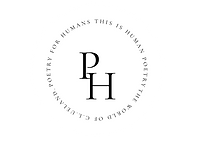A Case For the Wild Mustang
- C.L. Ueland

- Sep 17, 2025
- 2 min read
1.
They no longer call the mustangs wild.
Centuries isn’t long enough for the land
to be called home; I thought then, how can
we call this country ours?
2.
Mustangs disrupt
the delicate ecosystems where the cattle
graze and graze and graze. Where the
ranchers continue to battle for land like
they did two hundred years, forty-three presidents, eight
generations ago.
3.
Mustangs are invasive, though
they roamed the plains three hundred
years before the cattle did. Welcomed
by original peoples, integrated into
culture, in communion or wild,
in peace.
4.
Mustangs are a symbol
of the western landscape, sometimes
galloping free, sometimes
beneath the seat of painted bodies. I think
the west no longer exists, the
visions my heart see
just memories of past
lives when wildness was celebrated.
5.
Mustangs used to speak to me
in my dreams they caught
my confused expression and
bent their necks, beckoning
to the openness,
run with us here
on these open plains beneath
the soaring eagle and endless sky;
among the buffalo and prairie dogs—
your brothers and sisters. The meaning
of existence is right here: out there,
inside of you. Let your heart run wild.
6.
They say language matters.
The word mustang comes from
the Spanish “mustengo”. The meaning–
wild or masterless cattle. Now they call them:
feral. Words
determine how we view anything. Wild
conjures romantic visions of freedom, beauty.
Feral describes a scene of danger, unruliness.
7.
I was wild once, like the mustangs. When wild
no longer suited their purpose, I became
feral, a disruptor of delicate ecosystems.
As if the mustang and I had any say when
they divided the land and destroyed
everything in their way.




Comments